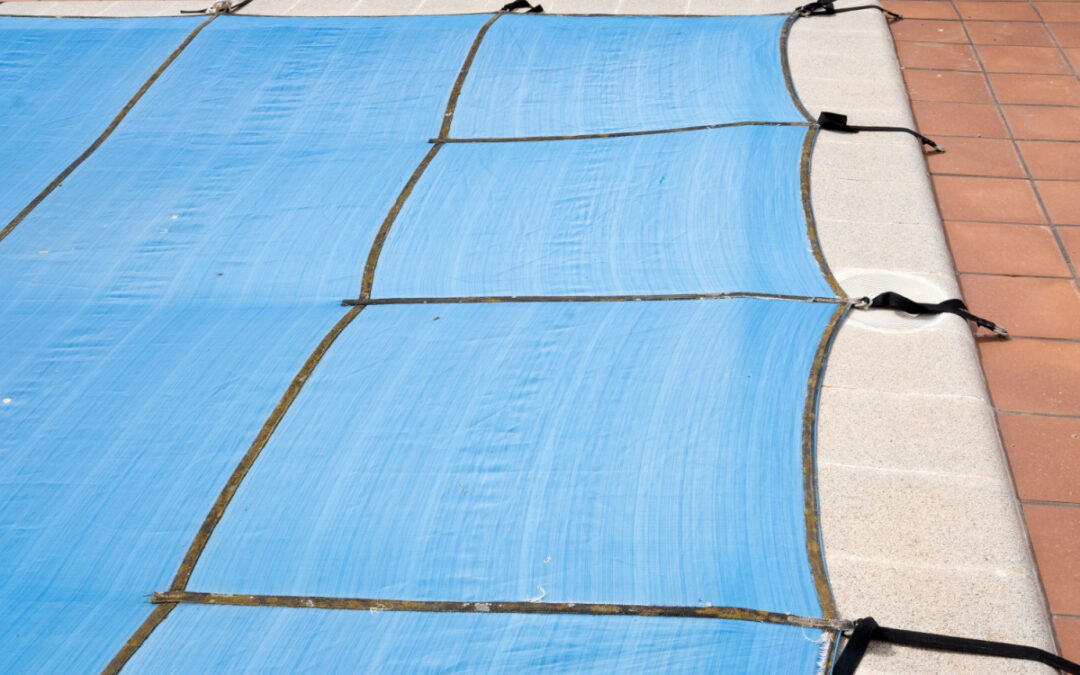As fall continues to get chillier and winter draws ever closer, many pool owners prepare to close (or have already shut down) their pools for the season. Even if no one plans on using your pool during the winter months, it’s still important to take steps to ensure the safety of children and pets. Here are some essential winter pool safety tips for parents and caregivers to keep in mind this (and every) year.
Cover the Pool
A non-negotiable step when it comes to winter pool safety is covering the pool. A well-designed standard pool cover may be all you need, but if you have especially young children or curious pets, a safety cover may be your best bet. This type of cover goes one step further by providing an extra layer of protection against accidental drowning. Whether you end up buying a standard cover or a safety cover, purchase a high-quality one that is specifically designed for your pool and fits securely — now is not the time to cheap out or make do with a makeshift solution.
Practice Proper Pool Maintenance
Drowning isn’t the only danger a pool can pose to kids and pets. Make sure to perform regular checks on the pool equipment, including the drain cover, filters, pumps, and other components, to ensure there are no broken parts, sharp edges, or other safety hazards. In addition, improper chemical balancing can spread illness and infection, so before closing the pool for the season, balance the pool chemistry and add appropriate winterizing chemicals to prevent mold and bacteria growth in pool drains and other critical locations.
Whether you’re in the process of closing your pool or it’s already closed, something else to keep in mind is that pool chemicals can be hazardous if ingested or touched. Just like you do with your other cleaning supplies, always store pool chemicals properly to protect determined dogs, crafty cats, and curious kids from accidental ingestion or exposure. Store all chemicals in a locked cabinet or out-of-reach location, and save the Poison Control Center’s phone number (1-800-222-1222) and/or the ASPCA’s Animal Poison Control phone number (1-888-426-4435) just in case.
Limit Access to the Pool
Another important pool safety tip is to limit access to the pool area during the off-season. Remove any access ladders or other equipment that may allow curious individuals to climb over or gain access to the pool area. This will reduce the risk of accidental falls or drowning. Additionally, if you have a pool fence, make sure it is in good condition and locked to prevent unauthorized entry.
Keep the Area Well-Lit
With daylight hours becoming shorter during the winter months, it’s important to ensure that your pool area is properly illuminated. This may sound contradictory when the pool isn’t in use, but good lighting will help you see any potential hazards and prevent accidents from happening in the dark. Consider installing motion-sensor lights around your pool area to save energy while keeping the area safe.
Stay Vigilant
Regularly check the pool area and secure any potential hazards. Keep the pool area free from toys, furniture, and other items that could attract children and pets. Make sure any gates, locks, and barriers are secure and in good condition. Additionally, be aware of any potential ice hazards in and around the pool area and take steps to prevent slips and falls.
Purchase a Pool Alarm
Since it’s impossible to literally watch your pool 24/7, you may want to consider investing in a pool alarm for your below or above-ground pool. These specialized alarms can be a lifesaver in the event that a person or pet accidentally falls into your pool during the winter months. There are several types of pool alarms available for both private and public pools, including those that sound an alert when the water surface is disturbed, those that are activated when someone enters the pool area, and much more. Be sure to choose a pool alarm that is appropriate for your pool size and type.
Educate Kids on Water Safety
While your children may not be using the pool during the winter months, it’s still important to educate them on water safety year-round. Invest in swim lessons for your children and make sure they know pool rules (such as never entering an unattended pool, never playing near drains or suction outlets, and never diving into shallow water, among other swimming pool safety tips). Additionally, always equip kids or pets with Coast Guard-approved life jackets whenever the situation calls for it.
Have an Emergency Plan
Even with all the necessary precautions in place, pool-related accidents can still happen. It’s important to have an emergency plan in case of an accident, including knowing how to perform CPR on both adults and children and having a phone nearby to call for emergency services. Be sure to share this plan with all members of your household and review it regularly.
Protect Your People, Your Pets, AND Your Pool!
While winter may not be prime swimming season, it’s important to take steps to ensure the safety of your pool area year-round — whether it’s a brand-new pool with Stone Harbor pavers or an old above-ground pool you’ve had for years. From keeping your pool area well-lit to setting up a pool alarm, there are a multitude of steps you can take to keep your kids safe, whether they’re the two-legged or the four-legged kind.
If you’re a pool owner in need of assistance with maintenance or winterization or if you’re looking to install a new pool, Island Pools & Patios is here to help. Our experienced team can provide top-quality renovation, repair, and pool resurfacing in NJ to ensure your pool is safe and enjoyable throughout the year. Contact us today to learn more about how we can help you with all your pool-related needs!

